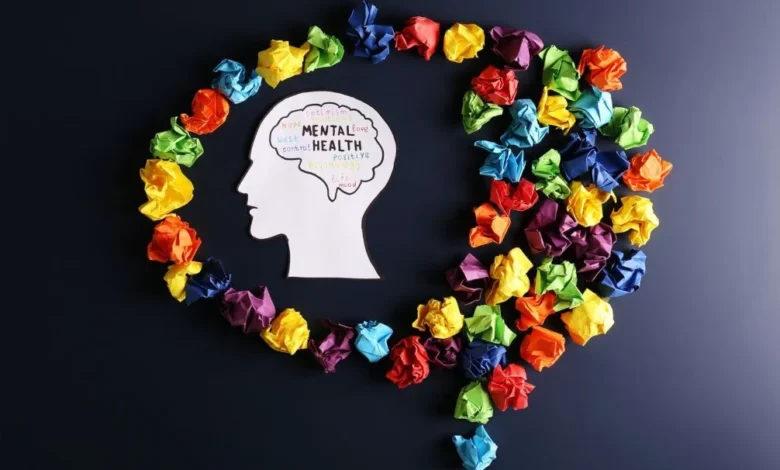Mental Health Awareness: Understanding and Prioritizing Mental Well-Being

Mental health awareness is essential in today’s fast-paced world. Understanding mental health issues, reducing stigma, and promoting self-care can help individuals lead happier and more fulfilling lives. By prioritizing mental well-being, we can create a supportive and compassionate society where everyone feels valued and understood.
Mental Health Awareness: Why It Matters
Mental health is just as important as physical health. Poor mental well-being can lead to stress, anxiety, depression, and other serious conditions that impact daily life. Raising awareness about mental health helps individuals recognize the signs, seek help, and adopt strategies to improve their emotional well-being. Mental illnesses can affect anyone, regardless of age, gender, or background, making it crucial to create supportive environments.
Mental Health Awareness: Common Mental Health Challenges
Many people experience mental health challenges at some point in their lives. Some of the most common issues include:
- Anxiety Disorders – Excessive worry, fear, and nervousness that affect daily activities.
- Depression – Persistent feelings of sadness, hopelessness, and a loss of interest in activities.
- Bipolar Disorder – Mood swings ranging from depressive lows to manic highs.
- Post-Traumatic Stress Disorder (PTSD) – Anxiety and flashbacks triggered by past traumatic experiences.
- Obsessive-Compulsive Disorder (OCD) – Uncontrollable thoughts and repetitive behaviors.
- Schizophrenia – A severe disorder that affects thinking, emotions, and behaviors.
- Eating Disorders – Unhealthy relationships with food and body image, such as anorexia or bulimia.
- Substance Abuse Disorders – Overuse of drugs or alcohol that negatively affects mental and physical health.
Mental Health Awareness: How to Support Mental Well-Being
Improving mental health requires conscious effort and self-care. Here are some ways to promote mental well-being:
Prioritize Self-Care
Taking care of yourself is key to maintaining good mental health. Activities like meditation, exercise, journaling, and engaging in hobbies can help reduce stress and improve emotional stability. Developing healthy routines and ensuring a balanced lifestyle can help prevent mental health struggles.
Stay Connected with Loved Ones
Social support plays a crucial role in mental well-being. Spending time with friends and family, talking about feelings, and seeking support from trusted individuals can improve mental health. Isolation and loneliness can exacerbate mental health issues, making social interactions essential.
Seek Professional Help
If mental health struggles become overwhelming, seeking professional help is essential. Therapists, counselors, and support groups can provide guidance, coping strategies, and treatment options. Many mental health professionals offer telehealth services, making it easier to access help from anywhere.
Practice Mindfulness and Stress Management
Mindfulness techniques such as deep breathing, yoga, and meditation can help manage stress and improve overall mental clarity. These techniques allow individuals to stay present and reduce anxiety about the past or future.
Raise Awareness and Reduce Stigma
Educating others about mental health helps eliminate stigma and encourages open discussions. Supporting mental health initiatives and advocating for mental wellness can create a positive impact. Workplaces, schools, and communities should foster environments where individuals feel safe discussing mental health concerns.
Maintain a Healthy Lifestyle
A nutritious diet, regular physical activity, and proper sleep contribute significantly to mental health. Reducing caffeine and alcohol intake, staying hydrated, and engaging in relaxation techniques can also improve mental well-being.
Also Read: Healthy Lifestyle Tips for a Better and Happier Life

Frequently Asked Questions (FAQs)
Why is mental health awareness important?
Mental health awareness helps people recognize signs of mental illness, seek help, and reduce stigma surrounding mental health issues. It encourages a proactive approach to emotional well-being.
How can I improve my mental health?
Practicing self-care, staying active, connecting with loved ones, and seeking professional support can significantly improve mental well-being.
What are the warning signs of mental health problems?
Signs include persistent sadness, excessive worry, mood swings, social withdrawal, and difficulty concentrating. Physical symptoms such as fatigue, headaches, and digestive issues can also indicate mental distress.
How can I support someone struggling with mental health issues?
Listen without judgment, encourage professional help, and offer emotional support to help them feel valued and understood. Avoid dismissing their feelings and instead provide reassurance and companionship.
Can lifestyle changes improve mental health?
Yes, a balanced diet, regular exercise, adequate sleep, and stress management techniques can positively impact mental well-being. Creating a positive daily routine can also contribute to long-term mental health benefits.
Conclusion
Mental health awareness is crucial for fostering a healthier and more understanding society. By promoting self-care, reducing stigma, and supporting mental wellness initiatives, we can create an environment where mental health is prioritized. Let’s work together to raise awareness and ensure that mental well-being is treated with the same importance as physical health. Spreading awareness and encouraging discussions about mental health can empower individuals to seek help and improve their overall quality of life.




One Comment